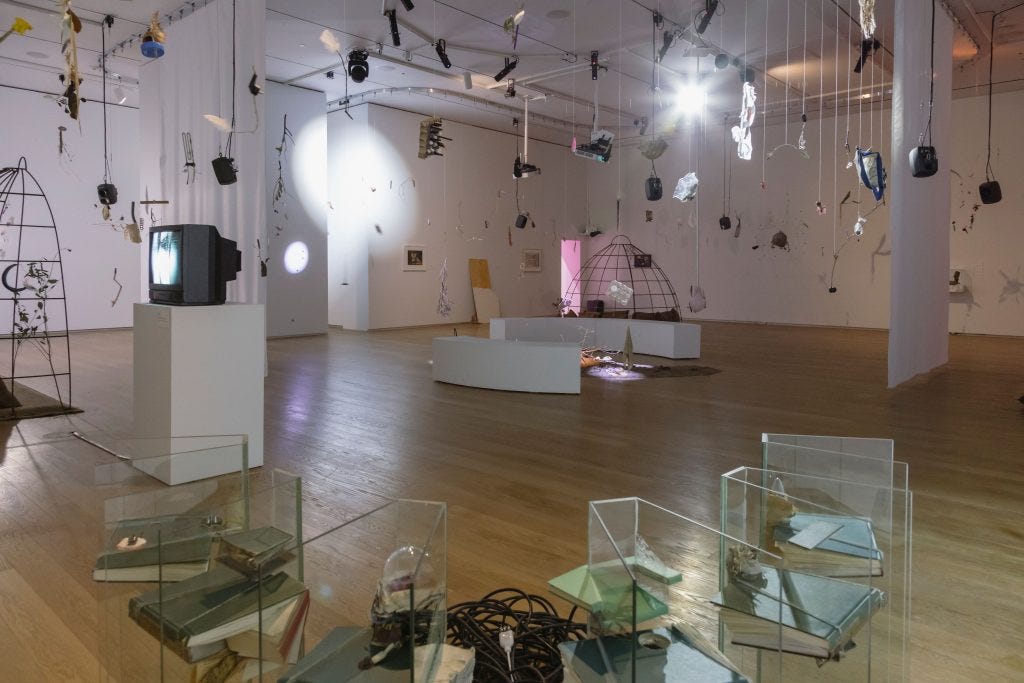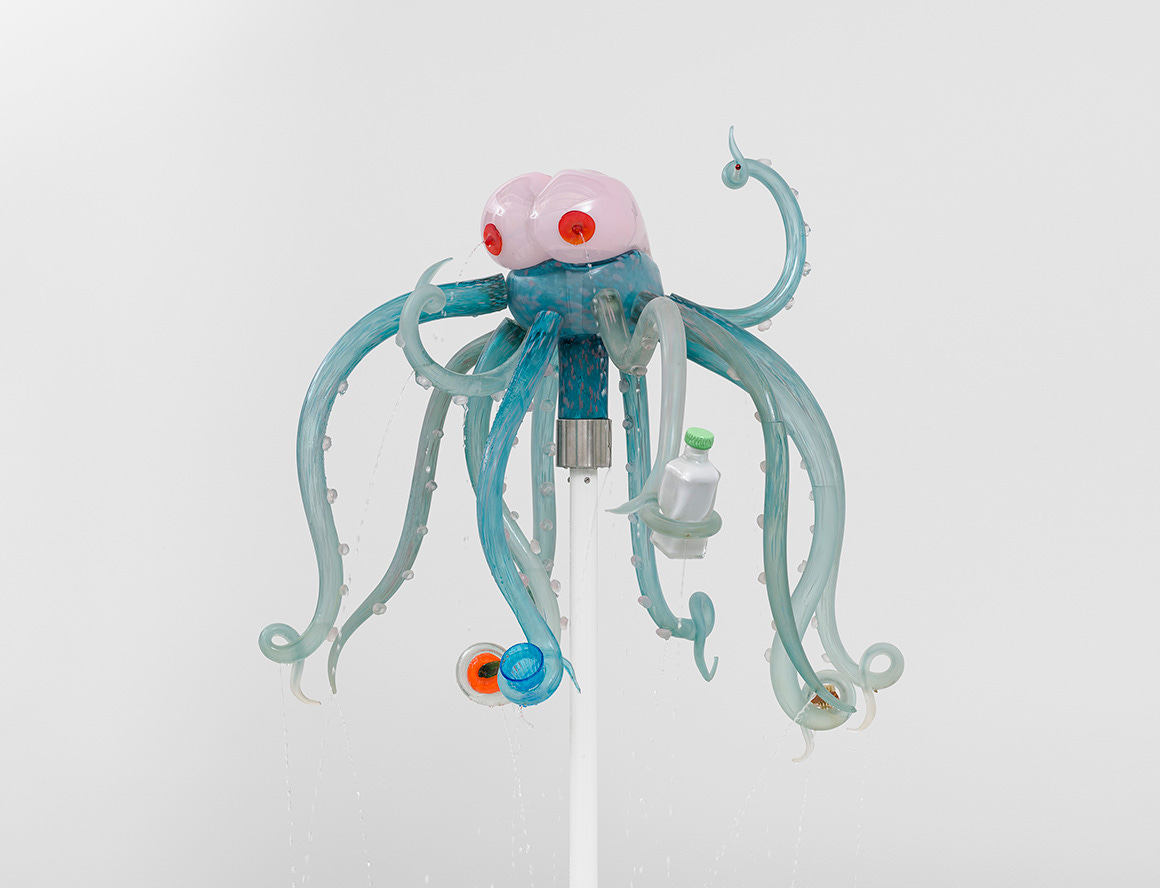The Language Let-Down
On intergenerational language transmission, what we inherit and what we remember
Let-down:
1. a disappointment.
2. the release of milk in a nursing mother/person or lactating animal as a reflex response to stimulation.
I recently started wearing a necklace with a gold round zodiac pendant, one my maternal grandmother gave me more than 25 years ago. I found it tucked away in a box one day along with other sentimental jewellery: two thin bands my mother wore when I was a child, another ring my mom bought for my grandmother when she came to visit Canada in the 1980s, some earrings I adored as a child, picked out from the Consumers Distributing catalogue, and a few other pieces of modest yet memorable jewellery. The only other object I have from my late grandmother is a pretty green fabric hanger for clothes. When I told her I liked the pattern, she insisted I take the hangar back with me to Canada.
If you follow me on Instagram, you likely saw my post on the Laure Prouvost Oma-je art show at Remai Modern in Saskatoon, the Canadian city where I grew up and where we were earlier this month. Prouvost’s substantial show, housed in one large room in the gallery, with interconnected smaller spaces, focuses on the figure of the grandmother and ideas around memory, inheritance, and imagination. The artist asks, who are our foremothers and who are we because of them; the Oma is for grandmother and je for I in French.
From the ceiling hang a multitude of different found objects, the representation of things one might inherit but also, the stuff of every-day life. In one corner pieces of red fabric hang in front of an entrance to a womb-like space where a screen plays a film about water worlds, birth, nature, the body, and matriarchal care. In another part of the room, another film plays where seven women call out for their grandmothers in the French coastal landscape using names like ona, nona, granny, babushka.

The gallery also recently acquired Prouvost’s This Means, a Murano glass sculpture of an octopus, representing the maternal figure. It has breasts for eyes and holds a bottle of milk, a glass representing the mother, an orange symbolizing love, a nail brush meaning excitement, and a flat spanner is the father figure. The octopus leaks water from the eye-breasts symbolizing life-long emotion.
After the show, over lunch at the gallery restaurant, my parents and I reminisced how one time, while my parents were visiting Poland and out for dinner with my extended family including both my grandmothers, the grandmothers refused to order anything from the menu. Every time a suggestion was made, one of my grandmothers responded saying she could make the same dish at home, for a fraction of the price. I was not at that dinner, but I do have a photo from it, both of my grandmothers, side-by-side at the restaurant table, refusing to order over-priced meals.
Back at my parents’ home, I got frustrated with one of my children who mostly refused to sit in the kitchen with my mom and, as I asked him to, practise his Polish with her. I tried to explain we have so little time not only with my parents face-to-face, but also to speak with other Polish speakers, that this was the chance to converse, to tell my parents in person about our lives in London and to practise his Polish. It was also selfish as I so desperately wanted relief, just for a few days, to not be the only one ensuring my children have enough opportunities to use their heritage language.
In case you are a new here, my partner does not speak Polish with my children, and although we have many multilingual friends in London, we are not part of a large Polish community and far from Polish family. As exposure and input are the vital elements of raising a multilingual child, this leaves me as the only person who can provide continuous exposure and input. This is why having other Polish speakers and family around is an opportunity not to be wasted. But it is also a lot of pressure on everyone to perform their parts.
Plus, children are children, and intergenerational language is not an inherited object, simply passed down, given to someone as the pendant or hangar was given to me. It does not always get taken, or even given in the way you wanted it to be given. It does not simply leak or flow like a milk let-down from a nursing breast or chest (or boob eyes!). I too remember as a kid recoiling from the phone when I was supposed to talk to my grandparents in Poland and thinking it was a hard thing to do, not only because I worried about making mistakes in Polish but like most kids, I didn’t appreciate the older generation, and all they had to share with me until I was much older.
Eventually during our short visit with my parents, I let go of my expectations and frustrations. But let-downs, both the breast kind and the emotional ones, can be painful, or at best, uncomfortable.
Intergenerational language transmission, or how languages are passed through generations in a family, is a process and, a collaboration between people, between generations and always, a negotiation between individuals.1 More and more researchers are looking at how a child’s agency — how kids feel, act, take responsibility and control — factors into heritage language transmission. There is no transmission and maintenance without some sort of buy-in from the child.2 Intergenerational language transmission is also constantly changing.
Languages are not objects but, in a way, they are not all that different from the every-day found objects, the films, the voices and the symbols in Prouvost’s show. Together, the fragments of every-day language use — short visits with grandparents, shared knowledge and experience passed on, cultural memories made, voices heard — even if the moments do not seem significant, all make up a lifetime of language and of course, love.
For more, see: Purkarthofer, J. (2020). Intergenerational challenges: Of handing down languages, passing on practices, and bringing multilingual speakers into being. Handbook of home language maintenance and development, 130-150.
Sometimes, my buy-in is because of bribery but no shame here!





Great post! I’m raising my children bilingual in Southern California and although my partner speaks Spanish he doesn’t use it regularly with the kids. So just like you, I feel enormous pressure to pass down this language that they care nothing about 🤪 The added pressure in my brain to constantly translate everything in my head when they answer in English (almost always) doesn’t help my parenting burnout. It’s a tough spot! Thank you for your reflection. Also you helped me see how my kids feel when their grandparents call on the phone 😅😂